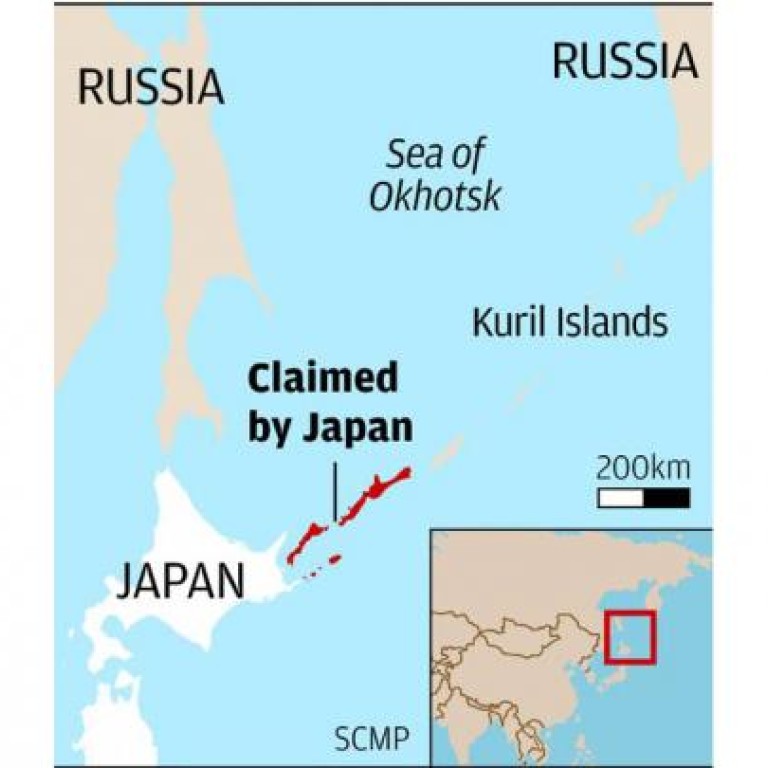
Japan seeks consensus to resolve dispute with Russia over Kurils
Moscow's envoy to Tokyo believes both sides are making progress on their relationship despite long-runnning dispute over seized islands
Amid the tumult in East Asian geopolitics - from territorial disputes to energy security, nuclear weapons and a potential arms race - Evgeny Afanasiev likes to quote Andrei Gromyko, foreign minister of the Soviet Union for 28 years.
"'Ten years of negotiations are better than one day of war'," the Russian ambassador to Tokyo said. "I think that is right."
The single issue that has divided Moscow and Tokyo, and obstructed the signing of a peace treaty to formally end the second world war has dragged on far longer than a decade, however. The two governments have been unable to solve the question of sovereignty over a chain of tiny islands off northern Japan that were seized by the Soviet Union in the dying days of the war.
But Afanasiev believes the time is ripe for the issue to be finally put to rest.
"This issue is a result of World War II and we have been there since 1945, but we would like to resolve this question and that is why we are in dialogue with Japan," he told the . "We have different possibilities, but this is a very serious issue and we are determined to continue our dialogue."
The dispute over the islands - which Japan claims as the Northern Territories and Russia calls the Southern Kurils - has waxed and waned over the decades, but there is increasing optimism today in Tokyo that a solution is close.
Yoshiro Mori, a former Japanese prime minister, will visit Moscow this month as a special envoy of Prime Minister Shinzo Abe, with the islands one of the key points on the agenda.
And Afanasiev hinted that work is under way behind the scenes to move the issue forward.
"We are ready to discuss this and search for solutions to any issue in our relations with Japan," he said. "This includes the peace treaty. We have a long history and we have decided in the past with Japanese leaders that we should discuss without emotion to find solutions acceptable to both the Japanese and Russian publics.
"That is not easy and it can be difficult to create the conditions for further discussions.
"Both sides should accept the historic reality and we should change people's minds through discussions.
"On this sensitive issue, I see no meaning in publicly debating the issue, so we shall go about our diplomatic work.
"In diplomacy, one should never rush," he added. "We need time. But for both sides, this is our goal. We need a peace treaty because that would resolve a lot of the problems between us."
The two sides are being brought closer together by Japan's thirst for natural resources and Russia's ramped-up investment in developing its gas and oil deposits in Siberia.
"The Asia-Pacific region has a special dynamism," the ambassador said. "Twenty years ago, Russia was not a Pacific power and was not very visible in the economy of the region. But today, trade is growing.
"With China, trade is worth around US$80 billion a year and that will soon grow to US$100 billion," he said.
"A new pipeline has been finished from Siberia and for the first time in our history we are supplying Asia. Some goes to China, but most goes to Japan and other countries in Asia."
With everything running smoothly on the economic side, the key sticking point is the disputed islands.
"We certainly have problems, but our approach is very clear; we want to solve these problems as we develop our relationship," Afanasiev said, pointing to success in another bilateral row that has since been solved. "For 40 years, there were discussions between Russia and China over our borders, but we have been able to resolve those differences."

